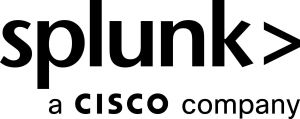Inventory of Azure virtual networks
As an administrator, you want to have a high-level view of virtual networks in your Azure infrastructure.
Data required
Microsoft: Azure virtual machine data
Procedure
- Configure the Splunk Add-on for Microsoft Cloud Services.
- Run the following search. You can optimize it by specifying an index and adjusting the time range.
sourcetype="mscs:resource:virtualNetwork"
|stats count BY location, properties.subnets{}.name, properties.addressSpace.addressPrefixes{}, name
|fields - count
|rename location AS Location name AS "Source Network", properties.subnets{}.name AS Name properties.addressSpace.addressPrefixes{} AS Subnet
Search explanation
The table provides an explanation of what each part of this search achieves. You can adjust this query based on the specifics of your environment.
| Splunk Search | Explanation |
|---|---|
|
|
Search only Azure virtual networks data. |
|
|
Count the number of instances for a combination of location, name, subnet, and source network. Return one row for each distinct combination of values. |
|
|
Remove the count field from the results. |
|
|
Rename the fields as shown for better readability. |
Next steps
Sample results for this search are shown in the table below. The results show all the virtual networks provisioned in the environment. This data could be the foundation for asset management data collection. Inventory and asset management tracking is considered a best practice in the ITIL framework. A search like this can be used to gather information on provisioned assets, in this case virtual networks. Asset management is critical in the cloud because it affects operation expenses, as well as security, and informs lifecycle management.
| Location | Name | Subnet | Source Network |
|---|---|---|---|
|
|
|
|
|
|
|
|
|
|
|
|
|
|
|
|
|
|
|
|
|
|
|
|
|
You might also be interested in other processes associated with the Managing Azure cloud infrastructure use case.

